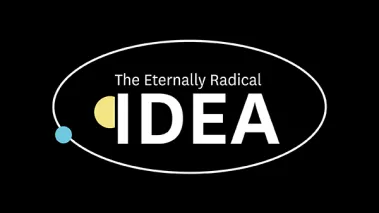Table of Contents
Greg’s Nowhere Near Definitive Outrage/Call-Out/Cancel Culture Study List

While it’s awkward to recommend so much of my own work, I had an early window into Cancel Culture because my work took place on the campuses from which the culture eventually coalesced. Thankfully, many others took up the torch after they noticed the same trends. If you want to see the rise of Cancel Culture from its origins on campus, these resources are a good place to start. And take note, these pieces all, as far as I can tell, come from perspectives ranging from the far left to the center.
- "Freedom from Speech," Greg Lukianoff @glukianoff (2014). Written quickly in the summer of 2014, this was my first detailed book into the then new and intense threats to free speech coming from college students that seemed to explode out of nowhere, starting in the fall semester of 2013.
- “The Coddling of the American Mind,” Greg Lukianoff @glukianoff and Jonathan Haidt @JonHaidt (The Atlantic, 2014). Jon and I reported on a trend we had both seen — the language of “safety” was being deployed on campus to justify deplatforming and calls for punishment of overwhelmingly political speech.
- “Not a Very PC Thing to Say,” Jonathan Chait @jonathanchait (New York Magazine, 2015). This was one of the first articles I saw from someone outside of FIRE who had noticed the change, and saw that something was wrong.
- “Is Free Speech Becoming the New ‘All Lives Matter’?,” Michelle Goldberg @michelleinbklyn (Slate, 2015). Michelle smartly noticed that free speech was becoming a culture war issue, and saw the risks of the left ceding “free speech” as a conservative value.
- "So You’ve Been Publicly Shamed," Jon Ronson @jonronson (2015). I believe this was the first full-length book describing the problem we now call “Cancel Culture.” It’s an empathetic series of case studies of victims of public shaming campaigns.
- "Galileo’s Middle Finger," Alice Dreger @alicedreger (2015). FIRE friend, former professor, and current investigative journalist Alice Dreger takes a look at what happens at the intersection of science and activism — and it looks a lot like cancellation.
- High-profile Democrats and politicians on the left have defended free expression:
- President Obama Responds to the Charlie Hebdo Attack in France (Jan. 7, 2015).
- President Obama on Free Speech on Campus (Sept. 14, 2015).
- Bernie Sanders: Freedom of speech is "what America is about", Meet the Press (June 18, 2017).
- Senator Elizabeth Warren Discusses Free Speech on College Campuses (Oct. 26, 2019).
- What Barack Obama gets exactly right about our toxic 'cancel' culture, CNN (Oct. 30, 2019).
- “The Chicago Statement”: Report of the Committee on Freedom of Expression, University of Chicago (2015). After author Dan Savage was accused of committing a “hate crime” on campus during a 2014 speech (during which Savage suggested that trans people “reclaim” the t-word; Savage describes the event in his own words here), the campus started an inquiry into freedom of expression. The result was this policy statement, which emphasizes the centrality of freedom of speech to educational institutions; many other institutions have adopted forms of it in the years since.
- "Trigger Warning," Mick Hume (2015). Hume follows the statements of solidarity with free speech after the Charlie Hebdo massacre as they devolve into a series of caveats and exceptions, ultimately noting that many of the people who claim to support freedom of speech “want speech that is released from custody only on licence with a promise of good behavior, preferably wearing a security ankle bracelet[.]”
- "Can We Take a Joke?" (2016). This film looks at free expression through the lens of comedy, and more specifically, comedy that has faced calls for censorship, both from government censors (in the case of Lenny Bruce) and from well-meaning activists.
- "Open Letter: On Blasphemy, Islamophobia, and the True Enemies of Free Expression," Charb (2016). The late editor in chief of Charlie Hebdo, full name Stèphane Charbonnier, finished this defense of free expression two days before his 2015 murder.
- "iGen", Jean M. Twenge @jean_twenge (2017). The most important insight of "iGen" (and there are many) is the generational shift in attitudes toward free speech documented by Twenge’s research.
- "The Coddling of the American Mind," Greg Lukianoff @glukianoff and Jonathan Haidt @JonHaidt (2017). This is the book that grew from the 2014 Atlantic article listed above. We are currently revisiting the topics (and data) from the book in a series in my Eternally Radical Idea blog; parts one and two are available now.
- The Hidden Tribes of America project, More in Common (2018). The Hidden Tribes survey revealed through research what many of us suspected instinctively: The bulk of calls to cancel come from a small (8% of the population), non-diverse cohort of highly-educated, generally affluent people.
- "The Problem with Everything," Meghan Daum @meghan_daum (2019). Daum wrestles with the state of culture through the lens of personal memoir with reflection and humility.
Recent Articles
FIRE’s award-winning Newsdesk covers the free speech news you need to stay informed.

AI is new — the laws that govern it don’t have to be
Existing laws and deliberation offer the tools we need to handle emerging technologies, rather than hasty lawmaking.

Defending free speech: FIRE and Substack partner to protect writers in America
America has recently sent a message to foreigners lawfully residing in the country: You can stay here — but only if you give up your freedom of speech

Brown University targets student journalist for sending DOGE-like emails
After a student asked administrators what they did last week, Brown launched an probe based on claims he had “emotionally harmed” several employees

FIRE-supported Utah legislation secures students’ rights to freely associate on campus
Utah Gov. Cox just signed into law HB 390, ensuring religious, political, and ideological student groups can determine their own members and leadership